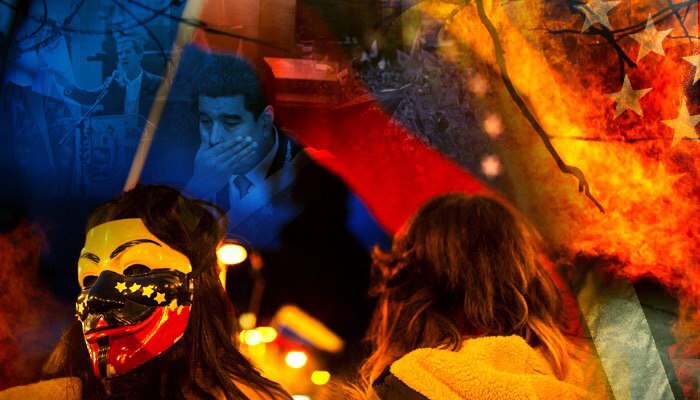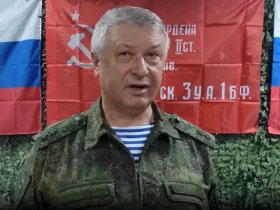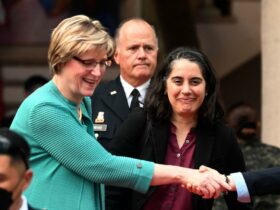The crisis in Venezuela can be explained in many ways and from different points of view, but little has been said about some of the fundamental issues related to geopolitics, natural resources and economics among some of the other issues intertwined in the conflict.
Economic considerations are surely among the most central to the question. The Venezuelan economy currently depends on the sale of oil, a resource that the country has in abundance constituting the largest reserve in the world and meaning more than 90% of its sources of income. This resource is of vital importance for the country and the government, to the point that, in 2017, President Nicolás Maduro handed over control of PDVSA (Petróleos de Venezuela) to the Venezuelan army (Mercopress, 2017). This measure was made to ensure control and avoid the decline that the country was suffering in this sector, mainly due to corruption, lack of innovation and investments. However, the decline of the Venezuelan oil industry did nothing but continue to worsen, further aggravating the situation in the country (Business Insiders, 2018).
Venezuelan oil reserves are estimated at around 300,000 million barrels (OPEC, 2018), the largest in the world, but, despite this, it is not the largest oil exporter: different sources rank it between the sixth and the tenth. There are various reasons for this, sub-optimal geographical location is one, but poor quality is likely the key factor. Most of the Venezuelan oil is “extra-heavy crude” which is not a highly valued item, and which ends up contributing to cutbacks due to the need for great refinement that buyers must use.
While it is true that the main buyer of Venezuelan fuel was and still is the US, It is necessary to qualify some things. The US is not only the largest consumer of oil in the world, it is also becoming one of the largest producers, (eia, US Energy Information Administration, 2017) motivated by energy self-sufficiency. As already mentioned, it is still the largest buyer of Venezuelan oil, but this represents only 7% of the fuel imported by the US (eia, U.S. Energy Information Administration, 2017). This reality was maintained during Hugo Chávez’s presidency where moments of economic stability were owed mostly to oil trade with the US, and if this president was not deposed, it was because neither Venezuela nor its oil represented a threat beyond the dialectical and ideological.
Approximately 45% of Venezuelan crude is purchased by the US (Panamapost, 2018). The other two top buyers of Venezuelan fuel are China and India, together composing an amount similar to the US. China has great interest in Venezuela, being, after the United States, the county’s largest trading partner. Keep in mind that China is the second largest fossil fuel consumer in the world (Forbes, 2018) and its needs are constantly increasingly. The Asian giant, in addition to being the second buyer of fuel to Venezuela, recently bought a massive 9.9% share of the joint oil company Sinovensa bringing its ownership to 49% (Sputnik , 2019a).
In addition, we must add another agreement signed between China and Venezuela to create a joint chemical refinery in China to refine the oil extracted from Venezuela. In this treaty, the Chinese company China National Petroleum Corp put 60% of the necessary investment to ensure the flow of Venezuelan fuel as part of an economic strategy that already amounts to 50 million dollars borrowed after 10 years of economic aid to the South American country (Reuters, 2018).
It is worth noting that Venezuela has one of the highest levels of corruption in the world, and has highest inflation rate on the planet, which led to Nicolás Maduro himself to recognize that the economic model led by him and his party was an evident failure in need of drastic reforms. The economic disaster in Venezuela is so serious the country is facing mass shortages and an inability to buy basic supplies for food and medicine, a situation usually reserved to the most underdeveloped countries of Africa.
The economic failure of Maduro’s party is so evident that even Russia has offered direct economic advice in December 2018, something that was already foreseen when the venezuelan regime was on the verge of economic collapse in 2015 (Russia Direct , 2015). Unlike what is written in many media reports, perhaps due to ignorance or simply due to ideological motivation, Russia is a country that does not have the same degree of energy interest in Venezuela, as could China, India, and even the USA have, for the simple reason that Russia is energy self-sufficient. However, it collaborates in different areas with the South American country in the energy field, making large investments to boost the production of fuel with the hope of obtaining future benefits (Washington Post, 2018).
While it is true that Venezuela has suffered from sanctions by the US, Canada and some countries of the European Union, it is also true that the US continues to be its main buyer, and has not stopped buying fuel at any time. The sanctions hindered Venezuela in selling its assets abroad and getting cash, affecting foreign currency destined for imports without being able to meet its international commitments.
Perhaps this is a case where economic sanctions proved to be more “successful”, not only because of their direct impact, but also because they contributed to the deterioration of Chavismo’s economic failure, since if we compare other countries that faced greater economic sanctions, such as Russia and Iran, we can observe that neither reached the severity of the Venezuelan collapse. Similarly, the BBC announced that these measures were not enough to eliminate Maduro’s government without internal pressure revealing the political and geopolitical strategy that we will explain next.
In the political and geopolitical aspect interests converge, mainly on the part of the US, China and Russia, relegating South American interest to a position of secondary importance.
In the American case, the US‘ position in the world since the election of Donald Trump has been gradually reducing to improve its domestic economy. This can be noted in almost all aspects, from the economic with the gradual loss of importance of the dollar and the increase in importance of the Yuan, as well as the military with the increasing reduction of military presence in many regions of the world.
However, the US is aware that a country contrary to its policies and ideology could present obstacles in its “backyard,” particularly given the countries susceptibility to Russian and Chinese influence. This consideration was established in 2015 by Barack Obama when he called Venezuela an “unusual and extraordinary threat to national security and US foreign policy ” (The White House, 2015). The US sharpened its rhetoric against Nicolás Maduro in 2017, and recently recognized opposition figure Juan Guaidó’s declaration that he was the legal president of Venezuela.
This recognition by the US was seconded by most European and Latin American countries, which constitutes an even greater danger of instability of Venezuela.
Summing up the electoral issue, it is necessary to mention that the elections of May 2018 were not recognized by the opposition that controls the National Assembly due to accusations of electoral fraud. However, the elections allowed the opposition to participate, although with the abstention of 3 such parties. Almost 55% of those registered refused to vote, which means that Maduro’s victory came with very low voter participation. It is true that in many countries of the world there are cases where the percentage of voters is this low or lower, but in the Venezuelan case, participation was around 80% of the electorate in the last elections.
Electoral guarantees were not the order of the day, especially after the UN concluded that the Maduro government did not show enough transparency, although other bodies of lesser importance, such as the Latin American Council of Electoral Experts, approved the electoral process. Both Maduro and Guaidó rely on the constitution to defend their positions, which can be interpreted in both directions.
Guaidó opted for a popular uprising to attempt to secure victory and called for an insurrection of the military against Maduro, a proposition that was rejected by the Minister of Defense and military leadership who remained faithful to Chávez’s legacy.
US officials announced that they would put all of their diplomatic efforts toward supporting Guaidó against Maduro, but things didn’t go as planned. Despite international recognition, some South American countries and members of the European Union proposed new elections, hindering the American’s objectives. When the dispute came to the United Nations, Guaidó was not recognized as interim president after a hard-fought vote where an agreement was not reached. This is not unlike what happened in the OAS (Organization of American States) where consensus was not reached in recognizing Guaidó .
Another concern for the US is the continual debt that Venezuela acquired, but their actual concern is not the indebtedness itself, but that the debt was mostly contracted with Russia and China. The Asian giant is the largest investor by far, not only in Venezuela, but in all of South America. As we mentioned earlier, Venezuela received more than 50,000 million dollars in loans. China lent more to the country than the joint loans made by the World Bank and the Inter-American Development Bank.
In this sense, the Venezuelan economy is practically at the mercy of China. Russia is the next largest investor country, but a very far second at 17,000 billion dollars. Debts were made flexible several times by the Russian government in order to give some respite to the Maduro administration at times of greatest crisis as announced in 2017 (Telesur, 2017), and recently in 2019 with a new debt restructuring plan. This led to another incident which rose alarm bells in the US: the Venezuelan-owned company CITGO (one of the main refineries and gas station chains in the US) was put down as a guarantee of payment in case Venezuela could not pay off its debt with Moscow (CNN, 2017). The US announced in respond. citing concerns over national security, that they would never allow Venezuela to deliver CITGO to Russia (Washington Post, 2019).
Chavismo in its beginnings knew how to build itself from theories contrary to globalization, favourable to a multipolar world and to South American regional integration, positioning itself as nationalist more-so than socialist government.
Despite this, the socialist vision is that which endured and prevailed in the discourse and policies with indigenous, anti-American, anti-Spanish strong gradual nationalization always accompanied by equally strong political clientelism.
The idea of the “Patria Grande” (Great Homeland) defended by Hugo Chávez, sought a union of the South American continent and had its maximum success with the creation of UNASUR, a very useful organism that represented a body of regulation for a common foreign policy, as well as regional integration. UNASUR also represented agreements to coordinate and promote development in the region from the field of infrastructure to others such as education and science.
The problem of this was the politicization and mooring of the different governments of the left that made UNASUR during the first years, which ended up contributing to the loss of confidence of this organization on the part of society and the future political authorities of the countries of the region, contrary to the governments of the left, such as the cases of Argentina, Brazil and Chile.
Although UNASUR had the goal of regional integration, the current consequences of its mismanagement and politicization caused most of its member countries to withdraw swiftly, contributing to countries outside the South American continent having political and pragmatic clout to decide the future of Venezuela, especially the US and China.
We can conclude that the oil factor is not the main objective for the United States, but is without a doubt a high priority. Could also talk about a new “Monroe Doctrine” in the USA with the idea of America for the Americans against colonialism and the powers outside the continent. That political doctrine appears only coincidentally when international events are combined with geopolitical interests, since in other events that linked countries of the American continent with foreign powers, such as the Falklands War, this inclination and political interpretation was conspicuous by its absence.
The internal situation is very complicated, political and social instability has marked Venezuela as a focus of attention throughout the world. Venezuela’s censoring of dissenting voices has put it on the list of countries with the least democratic freedoms. Likewise, the increase in crime and murders left the country among the most dangerous in the world. Not to mention the more than 4 million Venezuelans – 18% of the population – who have left the country since Maduro took office due to poverty and instability, a number like that of displaced Syrians outside their country, but without the context of a war.
A possible military intervention, although unlikely, would only complicate the situation further, creating a worse humanitarian crisis with even more dire consequences that would affect the entire region, increasing the number of migrants and displaced persons.
In any case, the loss of the country’s sovereignty is almost guaranteed regardless of which side comes out ahead, making this unfortunate situation a dark episode in Latin America. If one thing is clear, it is that the current crisis in Venezuela is the crisis of the Maduro regime.

















Leave a Reply